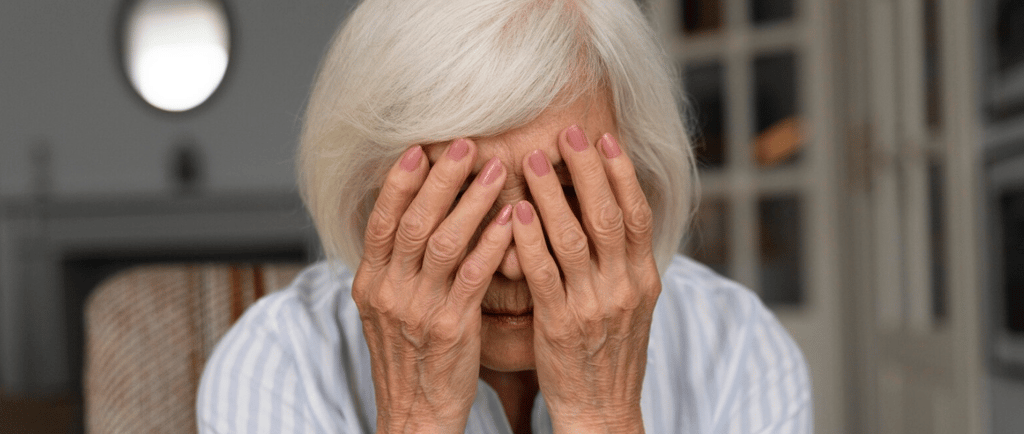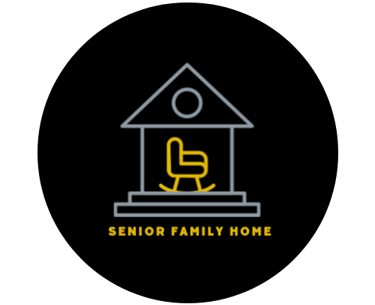Understanding Fatigue in Older Adults: Causes, Concerns, and What You Can Do


Fatigue is one of the most common — yet least discussed — challenges many older adults face. It’s easy to brush off tiredness as “just part of getting older,” but the truth is that persistent fatigue can significantly affect a senior’s quality of life. At Senior Family Home, we believe that every individual deserves to feel seen, supported, and energized as they age. That’s why it’s so important to understand what fatigue really means in later life — and what we can do about it.
What Does Fatigue Look Like in Older Adults?
Fatigue goes beyond simply feeling tired at the end of the day. It can present as a deep, ongoing exhaustion that doesn't seem to improve with rest. A person may feel physically drained, mentally foggy, or emotionally unmotivated — sometimes all at once. They may start declining invitations to activities they once enjoyed, skip meals, or spend more time isolated in their room.
For family members and caregivers, these changes can be subtle at first. But over time, fatigue can quietly reduce a senior’s engagement, health, and overall sense of well-being. Recognizing the signs early is key.
Common Causes of Fatigue in Older Adults
There is no single cause of fatigue in seniors — it’s often a combination of physical, emotional, and environmental factors. Below are some of the most common contributors:
1. Underlying Medical Conditions
Many chronic health conditions can cause fatigue. These include heart disease, diabetes, arthritis, and thyroid imbalances. Even mild infections, like urinary tract infections, can take a toll on an older adult’s energy. Seniors with chronic pain may also become fatigued simply from the physical effort of coping with daily discomfort.
2. Medication Side Effects
Older adults often take multiple medications, and some of them — such as blood pressure medications, sedatives, or antidepressants — can lead to drowsiness or low energy. Drug interactions and dosages may also contribute, especially if medications haven’t been reviewed in a while.
3. Mental and Emotional Health
Depression and anxiety can be invisible burdens that drain energy throughout the day. Fatigue is often one of the earliest symptoms of depression in older adults, and it may be misinterpreted as a physical issue. Grief, loss of independence, or major life transitions can also weigh heavily, especially if a senior feels unsupported or disconnected.
4. Poor Nutrition and Dehydration
When seniors aren’t eating well or drinking enough fluids, fatigue quickly follows. Lack of appetite, difficulty chewing, or dietary restrictions can all make it hard to get the proper nutrients — especially iron, B vitamins, and protein, which play important roles in energy levels. Dehydration is also common in older adults, particularly those who limit fluid intake due to bladder concerns or forget to drink water regularly.
5. Lack of Physical Activity
While it may sound counterintuitive, staying still too often can actually make fatigue worse. Gentle, consistent movement helps maintain circulation, muscle strength, and mental alertness. Seniors who sit for long periods each day may feel even more sluggish and disconnected from their environment.
What Families and Caregivers Can Do
The good news is that there are many ways to address fatigue — often with small but meaningful changes. Here are several ways families and caregivers can help:
Encourage Movement, Even in Small Steps
A short walk down the hallway, light stretching, or seated exercises can help improve circulation and boost mood. Movement doesn’t have to be strenuous to be beneficial.
Prioritize a Balanced Diet
Help ensure your loved one is getting well-rounded meals with enough protein, fiber, healthy fats, and hydration. If needed, speak with a doctor or nutritionist about supplements or meal support services.
Support a Consistent Sleep Routine
Sleep patterns often change with age. Creating a calming nighttime routine, avoiding caffeine or large meals late in the day, and reducing light or noise disruptions can all help promote better rest.
Monitor and Review Medications
Regular check-ins with a primary care provider or pharmacist can uncover whether any medications may be contributing to drowsiness or fatigue. Adjustments may be possible to improve energy levels without compromising health.
Foster Emotional Well-Being
Listening with empathy, encouraging connection, and involving seniors in group activities — even virtually — can ease feelings of isolation or sadness. Simply feeling heard and valued can go a long way.
Schedule a Medical Evaluation
If fatigue persists, it's important to consult a healthcare provider to rule out medical causes. Fatigue is often a symptom, not a diagnosis — and identifying its source can lead to real, lasting relief.
Moving Toward a Better Quality of Life
At Senior Family Home, we understand that energy is more than just a physical state — it’s a vital part of how we engage with life. For older adults, feeling energized means more time with loved ones, more joy in hobbies, and more confidence in daily living.
Fatigue may be common in older adults, but it should never be ignored. With the right care, attention, and environment, seniors can rediscover energy, purpose, and peace of mind.


